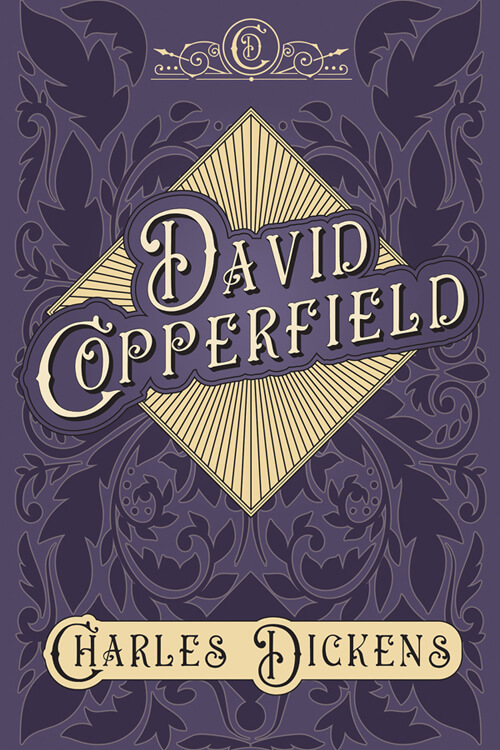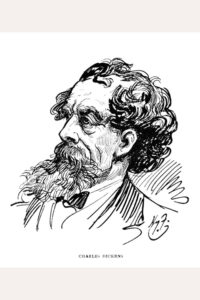
David Copperfield
These pages must show whether I shall turn out to be the hero of my own life or whether that station will be held by anybody else. To begin my life with the beginning of my life, I record that I was born (as I have been informed and believe) on a Friday at midnight. It was remarked that the clock began to strike, and I started to cry simultaneously.
In consideration of the day and hour of my birth, it was declared by the nurse and by some sage women in the neighborhood who had taken a lively interest in me several months before there was any possibility of our becoming personally acquainted, first, that I was destined to be unlucky in life; and secondly, that I was privileged to see ghosts and spirits; both these gifts inevitably attaching, as they believed, to all unlucky infants of either gender, born towards the small hours on a Friday night.
I need to say nothing here, on the first head, because nothing can show better than my history, whether that prediction was verified or falsified by the result. On the second branch of the question, I will only remark that I have not come into it unless I ran through that part of my inheritance while I was still a baby. But I do not at all complain of having been kept out of this property, and if anybody else should be in the present enjoyment of it, he is heartily welcome to keep it.
I was born with a caul advertised for sale in the newspapers at the low price of fifteen guineas. Whether sea-going people were short of money about that time or were short of faith and preferred cork jackets, I don’t know; all I know is that there was but one solitary bidding and that was from an attorney connected with the bill-broking business, who offered two pounds in cash. The balance is in sherry, but it is declined to be guaranteed from drowning on any higher bargain. Consequently, the advertisement was withdrawn at a dead loss – for as to sherry, my poor dear mother’s sherry was in the market then – and ten years afterward, the caul was put up in a raffle down in our part of the country, to fifty members at half-a-crown a head, the winner to spend five shillings. I was present, and I remember feeling quite uncomfortable and confused when I was disposed of that way. The caul was won, I recollect, by an old lady with a hand basket, who, very reluctantly, produced from it the stipulated five shillings, all in halfpence, and twopence halfpenny short – as it took an immense amount of time and a tremendous waste of arithmetic, to endeavor without any effect to prove to her. It is a fact that will be long remembered as remarkable down there that she was never drowned but died triumphantly in bed at ninety-two.
Read or download Book
Charles Dickens
Charles John Huffam Dickens (7 February 1812 – 9 June 1870) was an English novelist and social critic who created some of the world’s best-known fictional characters and is regarded by many as the greatest novelist of the Victorian era.
Biography.
His works enjoyed unprecedented popularity during his lifetime and, by the 20th century, critics and scholars had recognized him as a literary genius. His novels and short stories are widely read today.
Born in Portsmouth, Dickens left school at the age of 12 to work in a boot-blacking factory when his father John was incarcerated in a debtors’ prison. After three years he returned to school before he began his literary career as a journalist. Dickens edited a weekly journal for 20 years, wrote 15 novels, five novellas, hundreds of short stories and non-fiction articles, lectured and performed readings extensively, was an indefatigable letter writer, and campaigned vigorously for children’s rights, for education, and other social reforms. Dickens’s literary success began with the 1836 serial publication of The Pickwick Papers, a publishing phenomenon—thanks largely to the introduction of the character Sam Weller in the fourth episode—that sparked Pickwick merchandise and spin-offs. Within a few years, Dickens had become an international literary celebrity, famous for his humor, satire, and keen observation of character and society. His novels, most of them published in monthly or weekly installments, pioneered the serial publication of narrative fiction, which became the dominant Victorian mode for novel publication. Cliffhanger’s endings in his serial publications kept readers in suspense.
The installment format allowed Dickens to evaluate his audience’s reaction, and he often modified his plot and character development based on such feedback. For example, when his wife’s chiropodist expressed distress at the way Miss Mowcher in David Copperfield seemed to reflect her disabilities, Dickens improved the character with positive features. His plots were carefully constructed and he often wove elements from topical events into his narratives. Masses of the illiterate poor would individually pay a half penny to have each new monthly episode read to them, opening up and inspiring a new class of readers. His 1843 novella A Christmas Carol remains especially popular and continues to inspire adaptations in every creative medium. Oliver Twist and Great Expectations are also frequently adapted and, like many of his novels, evoke images of early Victorian London.
His 1859 novel A Tale of Two Cities (set in London and Paris) is his best-known work of historical fiction. The most celebrity of his era, he undertook, in response to public demand, a series of public reading tours in the later part of his career. The term Dickensian is used to describe something reminiscent of Dickens and his writings, such as poor social or working conditions, or comically repulsive characters.






